
Viking Names
Thorgeir
The male name Þorgeirr is extremely common in the Viking world (including Ireland and Normandy) and an anglicised version appears as the first element of the village- and wapentake-name Thurgarton in Nottinghamshire.
Read More

Viking Names
Sigulf
Sigulfr is a Scandinavian male personal name from Old Norse Sig- ‘victory’ and Old Norse -ulfr ‘wolf’. The name is possibly found in a Norwegian place-name and appears once in Jämtland (modern day Sweden) in 1347. The name is recorded in Sweden as runic sikulf and in the forms Sighulf, Sigell and possibly in the much contracted form Siel in Denmark. Sigulfr is also the first element in the place-name Sileby, Leicestershire.
Read More
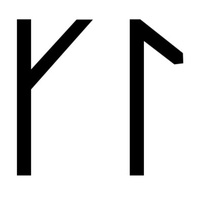
Viking Names
Broklaus
The postulated Old Norse male personal name Bróklauss is likely an Anglo-Scandinavian formation. It is originally a byname from the Old Norse elements Brók- ‘breeches’ and -lauss ‘less’. It is the first element in the place-name Brocklesby, Yarborough Wapentake, Lincolnshire, and in a field-name in Broughton, in Manley Wapentake, also in Lincolnshire.
Read More

Viking Names
Grim
The Old Norse male name Grímr is common across the Scandinavian world, including the Viking diaspora. It is very common in English place-names, though some of these might rather represent an Old English mythological name associated with Woden, and there are other possibilities. For this reason, not all the hybrid names traditionally referred to as ‘Grimston hybrids’ necessarily have an Old Norse element and it is better to refer to them as Toton-hybrids. However, where the name is compounded with an Old Norse element such as -by (as in Grimsby), it is likely that it represents the Old Norse personal name. In Old Norse, Grímr is related to the word gríma ‘mask’ and mythological texts relate that is one of the god Óðinn’s by-names, deriving from his penchant for travelling about in disguise. It is also a common element in compound personal names, such as Þorgrímr. The father of the eponymous hero of Egils saga was called Skalla-Grímr ‘Bald-Grim’.
Read More
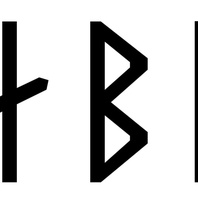
Viking Names
Api
Api is an original byname meaning ‘fool’. It is possibly found in the Norwegian place-name Apnes and there are a few instances in Old Danish, including perhaps, the runic forms abi and aba, although these forms may rather derive from Abbi or Æbbi. It is the first element in Apedale, North Yorkshire and Apethorpe, West Yorkshire.
Read More

Viking Names
Snip
The Old Norse byname Snípr may be related to Modern Norwegian snipa ‘miser, unsociable person’. A single instance is recorded in Norway in 1335. It is also the first element of the place-name Snibstone, Leicestershire.
Read More
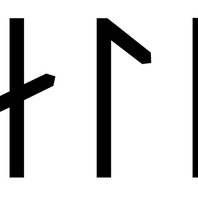
Viking Names
Ali/Alli
It is not possible to determine whether the names in Lincolnshire derive from Áli or Alli so all information for both names appears on this page. Áli is a diminutive name and occurs in Old West Scandinavia but it is not really frequent although it occurs as the first element of Norwegian place-names. It also appears in a few Danish place-names, but is not found in documents except for the Latin form Anulo. Alli is a short form of a compound name in Alf- or Al-. It does not occur independently in Old West Scandinavian but is found in a few Norwegian place-names. There are several instances in Old Danish including Latin Allo and a number of runic examples in both Denmark and Sweden. Áli or Alli is the first element of the place-names Aylesby, Althorpe, and Ailby in Lincolnshire.
Read More

Viking Names
Viking
The male name Víkingr is recorded in some eighteen Viking Age runic inscriptions from Denmark and Sweden, and there is evidence it was used in Norway in the Viking Age and even later. It probably derives from the appellative (common noun) víkingr, the meaning of which varies through time and in the different sources. In Lincolnshire, the place-name Wickenby is formed of either the name or the appellative plus Old Norse -by ‘farm, settlement’. In Leicestershire, the element is combined with Old English tun in Wigston Magna (while Wigston Parva has a quite different origin), and is thus a hybrid name. In this case, the parallels with other hybrid names suggest that the personal name is more likely than the appellative as the first element.
Read More

Viking Names
Gamal
Gamall originally a byname meaning ‘the old one’, is fairly frequent in Norway from the eleventh century onwards and is found in some Norwegian place-names. The name is also found in Sweden and Denmark. It is one of the most common Old Norse male personal names found in the Danelaw. Gamall is also the first element in Gamston, Nottinghamshire.
Read More
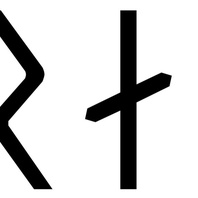
Viking Names
Grein
Grein is an original byname of which the interpretation is not certain. It is derived from Old Norse grein ‘branch’ or ‘reason’ or ‘distinction’ or ‘discernment’. There are some few late instances of the name recorded in West Scandinavia. It is also the first element in Grainsby, Lincolnshire.
Read More
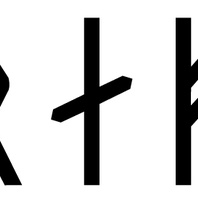
Viking Names
Hrafn
The Old Norse male name Hrafn is found throughout Scandinavia, but is particularly common in Iceland. It means ‘raven’ and belongs to a common group of male names which refer to animals, such as Arn ‘eagle’, Björn ‘bear’, Ulfr ‘wolf’. It is frequently compounded in personal names with other elements, as seen in the Old Norse personal name Hrafnkell, and others. When found in place-names, it is possible that it represents either the Old Norse common noun hrafn ‘raven’ or the Old English common noun hræfn ‘raven’, rather than a personal name. It may also represent a possible Old English personal name Hræfn. Hrafn is seen in the first element of the minor place name Ranskill in the Bassetlaw Wapentake of Nottinghamshire.
